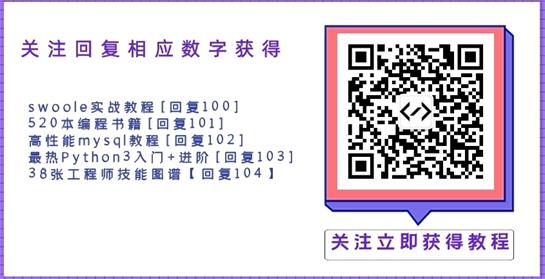茎叶图
from itertools import groupby
nums2=[225, 232,232,245,235,245,270,225,240,240,217,195,225,185,200,
220,200,210,271,240,220,230,215,252,225,220,206,185,227,236]
for k, g in groupby(sorted(nums2), key=lambda x: int(x) // 10):
print (k, list(g))
# print('k', k)
# print('g', list(g))
lst = map(str, [int(y) % 10 for y in list(g)])
print (k, '|', ' '.join(lst))
输出:
18 | 5 5 19 | 5 20 | 0 0 6 21 | 0 5 7 22 | 0 0 0 5 5 5 5 7 23 | 0 2 2 5 6 24 | 0 0 0 5 5 25 | 2 27 | 0 1
说明:
1./ 就表示 浮点数除法,返回浮点结果; // 表示整数除法。
2.itertools.groupby 按照分组函数的值对元素进行分组。
>>> from itertools import groupby
>>> x = groupby(range(10), lambda x: x < 5 or x > 8)
>>> for condition, numbers in x:
print(condition, list(numbers))
输出:
True [0, 1, 2, 3, 4]
False [5, 6, 7, 8]
True [9]
>>> [k for k, g in groupby('AAAABBBCCDAABBB')]
['A', 'B', 'C', 'D', 'A', 'B']
>>> [list(g) for k, g in groupby('AAAABBBCCD')]
[['A', 'A', 'A', 'A'], ['B', 'B', 'B'], ['C', 'C'], ['D']]
3.map(function, iterable, ...) 根据提供的函数对指定序列做映射。第一个参数 function 以参数序列中的每一个元素调用 function 函数,返回包含每次 function 函数返回值的新列表。
4.循环加处理的例子
>>> [int(y) % 10 for y in [22,73,34,92,45]] [2, 3, 4, 2, 5]
复合饼图
import numpy as np
import matplotlib as mpl
from matplotlib import cm
import matplotlib.pyplot as plt
from matplotlib.patches import ConnectionPatch
# 使图表元素中正常显示中文
mpl.rcParams['font.sans-serif'] = 'SimHei'
# 使坐标轴刻度标签正常显示负号
mpl.rcParams['axes.unicode_minus'] = False
#制画布
fig = plt.figure(figsize=(9,5.0625), facecolor='cornsilk')
ax1 = fig.add_subplot(121)
ax2 = fig.add_subplot(122)
# 调整子区布局
fig.subplots_adjust(wspace=0)
# 大饼图的制作
labels = ['成都','武汉','昆明','贵阳','西安','其它']
size = [802,530,477,256,233,307]
# 分裂距离
explode=(0,0,0,0,0,0.1)
ax1.pie(size, # 数据
autopct='%1.1f%%', # 锲形块的数据标签格式
startangle=30, # 锲形块开始角度
labels=labels,
colors=cm.Blues(range(10, 300, 50)),
explode=explode)
#小饼图的制作
labels2 = ['西宁','拉萨','乌鲁木齐','兰州']
size2 = [102,79, 76, 50]
width=0.2
ax2.pie(size2,
autopct='%1.1f%%',
startangle=90,
labels=labels2,
colors=cm.Blues(range(10, 300, 50)),
radius=0.5,
shadow=False)
#使用ConnectionPatch画出两个饼图的间连线
#先得到饼图边缘的数据
theta1, theta2 = ax1.patches[-1].theta1, ax1.patches[-1].theta2
center, r = ax1.patches[-1].center, ax1.patches[-1].r
#画出上边缘的连线
x = r*np.cos(np.pi/180*theta2)+center[0]
y = np.sin(np.pi/180*theta2)+center[1]
con1 = ConnectionPatch(xyA=(0, 0.5),
xyB=(x,y),
coordsA=ax2.transData,
coordsB=ax1.transData,
axesA=ax2,axesB=ax1)
print(-width/2, 0.5)
print(x,y)
#画出下边缘的连线
x = r*np.cos(np.pi/180*theta1) + center[0]
y = np.sin(np.pi/180*theta1) + center[1]
con2 = ConnectionPatch(xyA=(-0.1, -0.49),
xyB=(x,y),
coordsA='data',
coordsB='data',
axesA=ax2,axesB=ax1)
# 添加连接线
for con in [con1, con2]:
con.set_color('gray')
ax2.add_artist(con)
con.set_linewidth(1)
plt.show()
输出:

以上就是用python 绘制茎叶图和复合饼图的详细内容,更多关于python 绘制茎叶图和复合饼图的资料请关注自学编程网其它相关文章!

- 本文固定链接: https://zxbcw.cn/post/206413/
- 转载请注明:必须在正文中标注并保留原文链接
- QQ群: PHP高手阵营官方总群(344148542)
- QQ群: Yii2.0开发(304864863)
